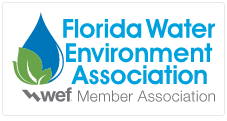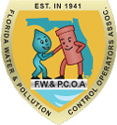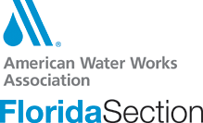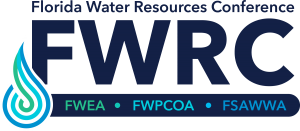Articles and Photos
GUIDELINES FOR SUBMITTING ARTICLES
The Florida Water Resources Journal publishes editorial material relating directly or indirectly to the water and wastewater industry of Florida. We publish technical articles; columns; notices and announcements on upcoming events; committee reports and other association business; letters to the editor; and press releases relating to new products, new literature, and general industry news.
We reserve the right to reject any and all submissions. We will not publish any material that contains personal attacks against individuals, public or private. All submittals are subject to editing for length, clarity, and style. We claim a compilation copyright on each issue, but copyrights on individual articles, photographs, cartoons, and other submissions remain with the authors.
FORMS OF SUBMITTAL
Preferred: E-mail attachment in Microsoft Word format.
Second Option: Upload your article online in Microsoft Word format.
STYLE
Because we often use Optical Character Recognition, we ask that articles submitted on paper do not contain bold print, underlining, italics, ALL CAPITALS, or right-justified margins. If it is necessary to emphasize certain words or phrases, please submit a second copy with emphasis indicated. Use only one space after periods. Please use commas after all items in a series (e.g., it’s black, white, and red). Place commas and periods inside closing quotes, e.g.,”…the end.” not “…the end”.
We generally prefer a somewhat more informal style than typical technical writing: shorter sentences and shorter paragraphs. The use of first person and contractions is acceptable.
ACRONYMS AND ABBREVIATIONS
Use acronyms and abbreviations sparingly. Avoid them if the term is used only a few times in the article. On the other hand, assume readers are familiar with acronyms and abbreviations common to the profession, e.g., EPA, DEP, BOD, mg/l, MGD (we include a glossary of common terms in each issue).
CAPITALIZATION
Do not capitalize words unless they are at the beginning of a sentence or part of a proper name (it’s “the city of Tallahassee” and “Panama City”; it’s “Superintendent Johnson,” but it’s “Walter Johnson, superintendent of…).
Examples of words often capitalized incorrectly include city, civil engineer, county, department, division, lead operator, president, vice president, superintendent, association, section, national, federation.
REPRINTING IN OTHER PUBLICATIONS
We frequently give other publications permission to reprint articles from the Florida Water Resources Journal. If you object to this for your article, please so inform us. If your article has previously been published, or if you’re sending it to other publications in addition to us, please inform us. If in the future you submit the same article to another publication, please inform them it has been published by the Florida Water Resources Journal.
TECHNICAL ARTICLES
The following are unacceptable for technical articles:
Articles without bylines.
Articles with incorrect or questionable technical accuracy.
Material written as ad copy or that reads as ad copy.
Press releases.
Technical articles are usually scheduled at least two months in advance of the issue month and are coordinated with our editorial calendar. Unsolicited articles that are judged to be acceptable will be published on a space-available basis.
If you are writing about a project your company is involved in, avoid making the article sound like ad copy or a press release; don’t use your company’s name or product more than an outside person would (usually no more than two or three times).
Length is flexible for technical articles, but the articles should be as concise as possible. Introductions and conclusions should be brief, to the point, and not redundant with information in the body of the article. A typical technical article length is 10 to 14 pages, single spaced, including photos, tables & illustrations. Minimal size for an article is about five pages, single spaced.
Either color or black-and-white photos and line drawings are acceptable. Illustrations should stand by themselves with adequate captions, if practical. Since larger illustrations must often be reduced in size for publication, the lettering on illustrations should be large enough to still be readable after reduction.
COLUMNS
Typically, columns that are submitted for publication average one to two pages, single spaced, although columns up to four pages single spaced are acceptable. Columnists who plan to submit a column longer than four pages should discuss the topic with the editor before submission so adequate space can be reserved.
NOTICES AND ANNOUNCEMENTS
Notices and Announcements that are judged to be of interest to our readers will be published. They should be as brief as possible and include a contact for the reader to obtain further information, if appropriate. They are, of course, subject to editing for length and style.
COMMITTEE REPORTS AND OTHER ASSOCIATION BUSINESS
These materials should be concise. They are subject to editing for length and house style. You should contact us as far in advance as possible to insure available space. Other than length, the above comments for technical articles apply.
LETTERS
All letters received by the Florida Water Resources Journal are assumed to be submitted for publication and are the property of the Journal. All published letters are subject to editing for length and house style. Letters containing personal attacks or insults to individuals will not be published. We reserve the right to refuse to publish any letter.
PRESS RELEASES
Press releases relating to new products and new literature, and general news about promotions, new hires, new contracts, office relocations, etc., are published on a space-available basis if they are judged to be of interest to our readers. Material that reads like an advertisement is unacceptable. Only press releases received via regular mail or email are acceptable. Material that is concise and well written is more likely to be published, and priority is given to our advertisers. All material received is subject to editing.




